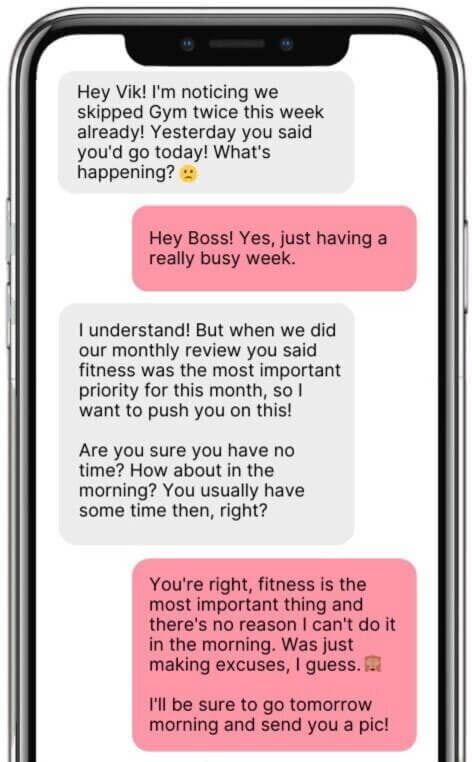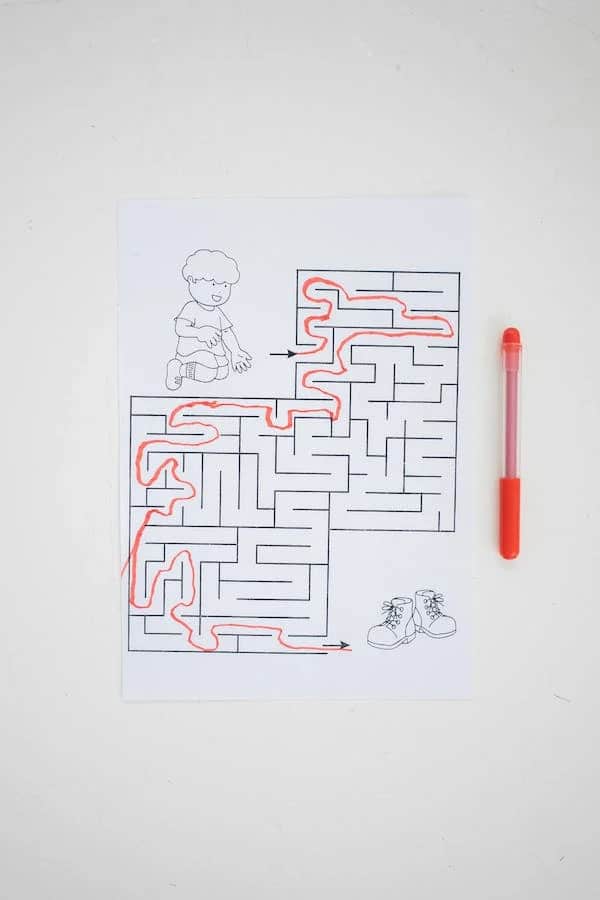Why Is Accountability Important?
Why Accountability Is Critical for Progress
If you've ever taken up a big goal or project that needs you to dedicate time and resources and work effectively with others, you know how important it is to keep up the motivation to see it through. Motivation to stay productive comes differently for different people -- for some, the desire to reap the rewards once the work is done or, on the flip side, to avoid the negative consequence of failure is enough to keep them going. For others, accountability does the trick.
People who recognize that they need to be held accountable for their actions know that accountability helps not only achieve their own personal and professional goals but also sets up others who depend on them for success.

What is accountability?
Accountability involves many aspects, the most fundamental of which is being responsible for your own actions. But it also involves understanding the impact that your actions can have on other people, and understanding that you're answerable to them for what you end up doing (or not doing).
Broadly speaking, you can think about accountability in two ways:
Personal accountability
As we said before, personal accountability is when you are responsible for taking action for your own goals. You can also think about it as you being answerable to yourself. Basically, Past and Present You are accountable for getting the goals your Future Self wants to see done.
Workplace accountability
"Workplace" here is a general term that can refer to your work, office, school, or any other space where you collaborate with others to work towards common goals. Accountability in the workplace can be two-fold. For instance, companies already hold employees accountable to finish the work they're assigned, and schools enforce accountability through homework and tests to make sure students are learning.
But the second layer of accountability comes within the team when you know your actions impact how others are able to do their work and meet their goals as well.

Why you need accountability
If you're someone who finds motivation in other ways or doesn't really like the idea of being answerable for your actions, you may ask why need accountability at all. But there are many benefits to creating a culture of accountability. Here are some examples:
Learning personal responsibility
Think of accountability as a nudge to help you develop the habit of being held responsible and in turn achieve your goals.
Creation of a positive work environment
A productive workplace culture depends heavily on team and employee accountability. If you can build a successful team where everyone is taking ownership of their goals, meeting deadlines, and helping each other, you'll create a more upbeat, motivated, and collaborative atmosphere. Going to work/school/project meetings will be full of positivity and fun!
Helps you keep your word and build confidence
Accountability does not always mean you have to make strict plans and defend them. However, sometimes you need to be reminded of what you intend to do, what you need to do as a team member to help others carry forward the goal -- and even that you can celebrate the milestones and wins when they come!
Helps you stick to your values and goals
When you first set your goals, you're full of hope and motivation. You know how you want to get to the finish line. But it's hard to keep up your spirits all the time and you may lose focus or make mistakes that could be avoided. So being accountable will help you make sure you do not waver from your path.
Keeps you grounded and on track
Just like you lose motivation with lots of failures, you can also get a false sense of security with too many early successes. Newer goals may tempt you away from your main focus, which could impact the entire team that is depending on you. Here, accountability plays a vital role in keeping you on track and not being carried away.
To avoid bad decisions and learn from failures
No one really knows if a particular path will take you toward success or failure, but sometimes, talking through certain decisions, gaining constructive feedback, and even being reminded about previous mistakes can help you avoid taking too many wrong turns.
And when you do fall, what's most important is that you acknowledge mistakes, and take the lessons from them to succeed next time, which an accountability system will help you do.

Builds a support system
The pressure of following through with a goal that would help with your growth, and perhaps even your organization's success, is a tall order. So having a system of accountability means you can work some of the pressure off and find some support and encouragement when you really need it.
Helps make tough choices
Sometimes making progress means doing something you really don't want to do, but you know it's necessary. In these cases, it's easy to put off or avoid the difficult choices and just try to focus on what is easy or convenient. Accountability will help break this inertia and force you to toughen up when needed.
How to get an accountability system
So now we've answered the question, "Why is accountability important?". Let's now see how you can set up that accountability system that will lead to your overall success and improve your organization's culture.
Find a professional mentor or coach
If you're aiming to set up accountability in the workplace, find a professional mentor or coach who knows your work culture and can give you really specific advice. This will not just help you do your work, but also set meaningful goals, plan for future growth, improve job satisfaction, and find that thriving work environment you want.
Try body doubling
Body doubling is a popular productivity technique in which you have someone watch you while you're doing your work, so that there is pressure on you to not procrastinate or give in to distractions. In this remotely working world, there are several apps and services that champion the body doubling method, like Caveday and Focusmate. Check these out to see if having watchful eyes on you keeps you accountable!
Hire an accountability coach or an accountability partner
An accountability coach is an expert on the subject -- someone who'll give you all the productivity tips and techniques you need to learn how to be a responsible individual. Just like any other coach, these experts will help you find your strengths and weaknesses, practice and improve your working style and guide you towards success.
Not too far away from accountability coaches, accountability partner services are those with helpful productivity and anti-procrastination methods that help you find long-term success.

Designate a family member or friend
We put this one in the end because mixing personal life and goals is almost never a good idea. But if you feel confident in balancing accountability needs with personal equations, approach a trusted family member or friend (or friends – you can create an accountability group!) to check in on you, keep you on track, and help in other ways like providing feedback on your progress. If you're finding an accountability partner, and mutually helping each other with your goals, don't forget that a partnership goes both ways. Make sure you know how to be a good accountability partner as well!
How to make sure you're held accountable
Once you've found your accountability system, there are some processes you need to follow to ensure you start on the right foot and are able to get the most out of this relationship:
Set clear expectations
A defined space to communicate expectations plays a crucial role in how your accountability system works. Make sure you're able to lay out what your goals are, how you want to work on them, and where you need to be given that nudge to keep pushing forward.
Align goals with vision
If you don't really have goals but just a vision of where you want to be, get help from your coach/partner to help you set goals that are in line with where you want to be. The best way would be to start small and ramp them up to make steady progress.

Create SMART goals
Once you start forming goals, follow the SMART (Specific, Measurable, Achievable, Relevant/Realistic, Time-bound) goals. For instance, don't just say, "I will finish the annual report". Go for, "I will finish the annual report in one month by working on it for two hours every day".
Use work-tracking tools
If you have a lot of work on the go and need to keep them all straight, use management tools like Trello or Notion to keep track of each process.
Ask for real-time feedback
Set up periodic check-ins with your accountability coach/partner and ask them for honest feedback on your progress. Also, use this time to share your obstacles, and make sure you come up with a plan to address all concerns.
How BaaS works to keep you accountable
Accountability is in our name! Well not literally, but it is what we're about. At Boss as a Service, we assign you live bosses to keep you accountable and focused, and even help you manage your work-tracking tools like Trello and Beeminder.
We also have periodic challenges where you can learn about personal responsibility and adopt a collaborative approach with a community.
Final thoughts
Accountability is important if you're serious about achieving your goals and setting up yourself and your peers for success. If you're exploring how you can leverage accountability to become your best self, take a look at these articles next!
- How to Find an Accountability Partner
- Using a Workout Accountability App to Stick to Your Fitness Goals